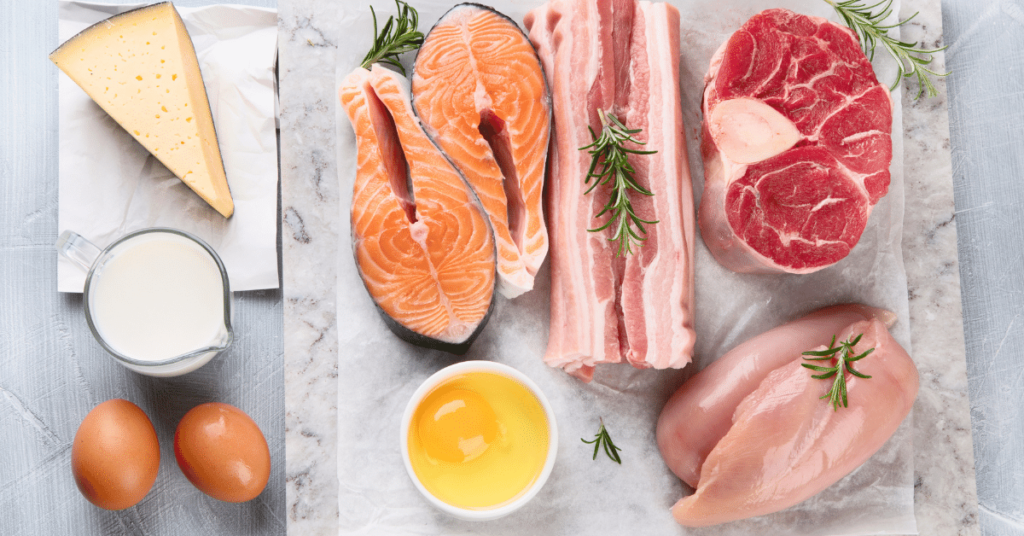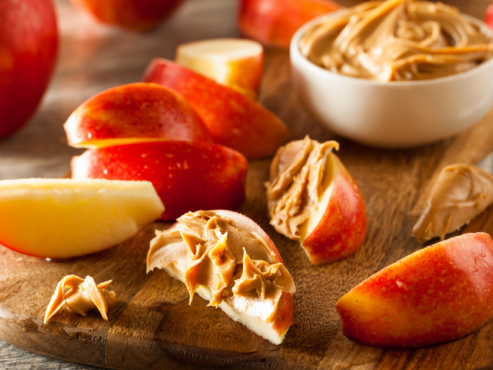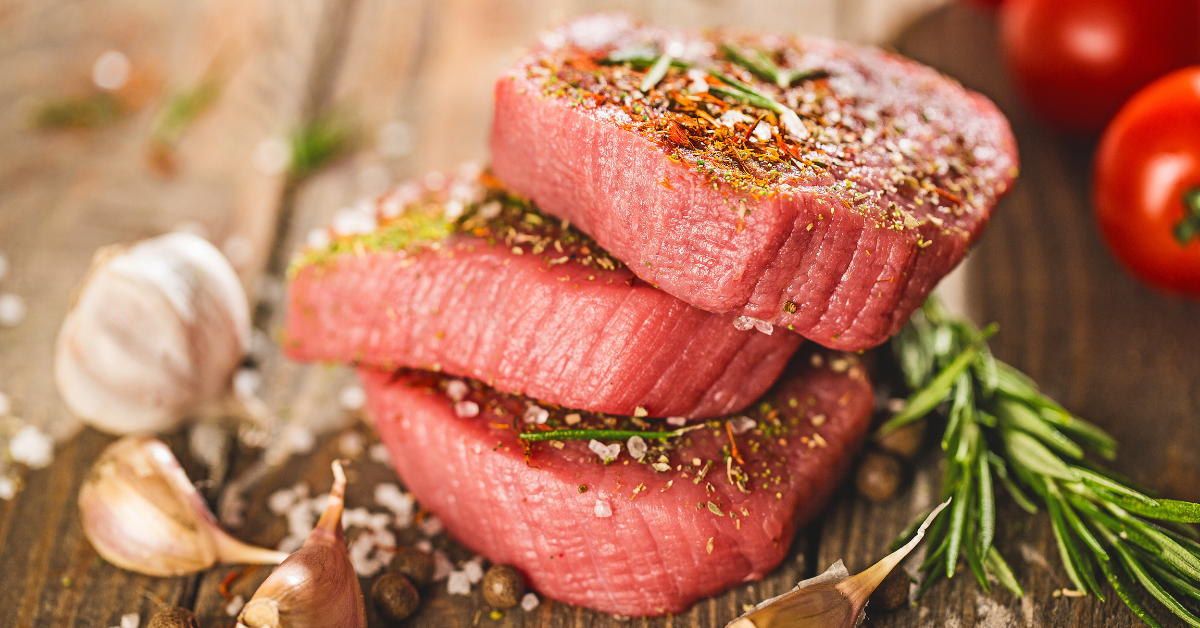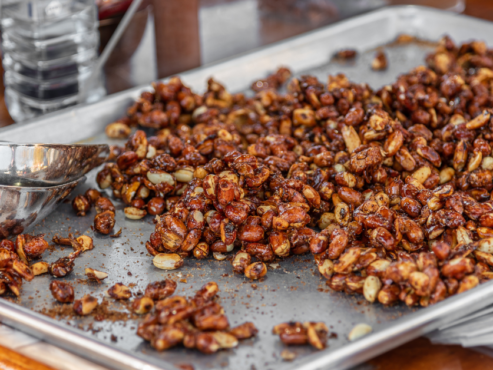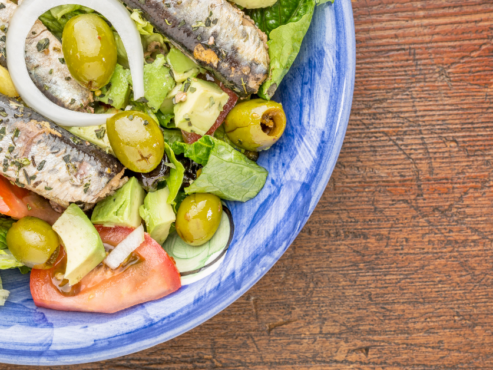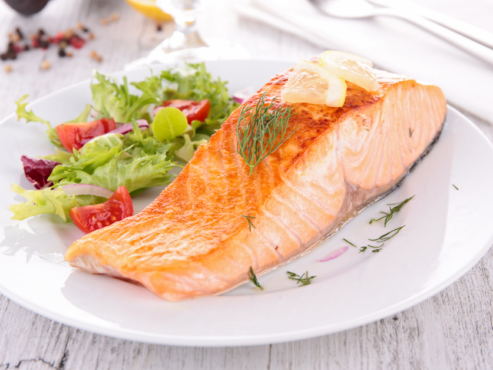
If your muscles are a house, protein is the bricks. The amino acids that make up protein are the building blocks of muscle and all tissue in the body, along with many hormones and components of your immune system. In truth, protein is necessary for all your body’s physiological functions.
Your body can manufacture many of these amino acids, but nine are known as essential amino acids (EAA) because they can’t be made in the body. Instead, you have to consume EAAs from food sources.
Check out these top protein sources and click on them to see some ideas on how you can quickly incorporate them into your daily regimen using minimal ingredients.
Top protein sources
Beef – 22g/100g
Great source of iron, B vitamins, essential minerals and creatine.
Eggs – 6g/egg
Great source of choline and leucine, which are essential for cognition and muscle growth, respectively.
Salmon – 25g/110g fillet
Great source of Omega 3 fatty acids essential for brain health and healthy cell membranes. Wild options are higher in protein, whilst farmed have a slightly higher fat content.
Sardines – 22g/100g
Sardines are cheap and convenient and a very concentrated source of omega 3 fatty acids.
Icelandic style 0% fat yoghurt – 11g/100g
Good source of vitamin B12 and vitamin D. Some varieties are also cultured making them beneficial for the gut.
Chicken thighs – 24g/100g
Chicken thighs have a slightly higher fat content than breast meat. Chicken is also a rich source of essential vitamins and minerals.
Chicken breast – 35g/medium breast
Breast meat has less fat than some other muscle meats like thighs or bone-in, skin-on options. The advantage here is that the protein content is generally higher.
Turkey – 30g/100g
Super lean and super high in protein. Turkey is also rich in the amino acid Tryptophan, a precursor to our calming neurotransmitters like serotonin.
Whey protein – 90g/100g
Whey concentrate is better to use in recipes. Isolate has more protein / 100g and is better tolerated by those with sensitivities.
Collagen Protein – 90g/100g
Has a favourable amino acid balance that lends itself well to joint and gut health. Also – it is lactose-free for those that can’t tolerate it.
Cottage cheese – 15g/100g
Great source of B vitamins and concentrated source of the amino acid Tryptophan which is a precursor to our calming neurotransmitter, serotonin
Bone broth – 10g/cup
Great source of Calcium, Vitamin K, zinc, selenium and collagen and rich source of the amino acid Glycine. It can be beneficial for those with digestive complaints and joint issues.
Greek/feta cheese – 15g/100g
Great source of well-absorbed calcium and Conjugated linoleic acid (CLA), a fatty acid that has been shown to decrease fat mass and promote lean body mass.
Gouda cheese – 25g/100g
Great source of well-absorbed calcium, naturally lactose-free for those that don’t tolerate well.
Unsmoked back bacon – 10g/Rasher
Opt for a nitrate-free version if possible. Back bacon has a much lower fat content than streaky.
Wild-caught white fish – 22g/100g
Hake, cod, and seabass are great options. They have lower fat and calories than oily fish, not as many beneficial EFA’s.
Prawns – 22g/100g
Low calorie, high protein option packed with additional vitamins and minerals.
